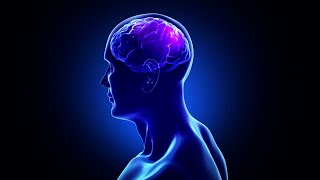
Step into a realm of specialized care designed to uplift and empower lives affected by Parkinson’s Disease Dementia. At IBS Hospital, we go beyond traditional approaches, offering tailored solutions that address the unique challenges of this condition. Our multidisciplinary team is dedicated to guiding individuals and families, providing expert medical care, and fostering a supportive environment for a brighter and more fulfilling journey.
What is Parkinson’s Disease Dementia?
Parkinson’s Disease Dementia is characterized by the gradual loss of thinking and reasoning in people with Parkinson’s disease, a neurodegenerative condition known for uncontrolled or slowed-down movements. The condition may not necessarily affect every person with Parkinson’s and generally develops one year or more after the initial diagnosis.
Recognising the Symptoms of Parkinson’s Disease Dementia
Common symptoms associated with Parkinson’s disease dementia include:
- Problems with memory
- Poor concentration and judgement
- Speech-related abnormalities
- Hallucinations
- Being delusional or paranoid
- Sleep disturbance
- Depression and anxiety
- Irritability
What causes Parkinson’s Disease Dementia?
Parkinson’s Disease is characterized by the build-up of alpha-synuclein protein, forming Lewy bodies that lead to the gradual loss of nerve cells in the substantia nigra. Initially affecting movements, it later disrupts other brain areas, impacting memory, thinking, and reasoning.
Diagnosis of Parkinson’s Disease Dementia
There is no specific test for diagnosing Parkinson’s disease dementia. However, if a person has already been diagnosed with Parkinson’s, their progression will be monitored to identify any dementia-related symptoms.
Management / Treatment of Parkinson’s Disease Dementia at IBS Hospital
At IBS Hospital, our approach to treating Parkinson’s disease dementia focuses on symptom management since there is no permanent cure. We offer various treatment options, including:
- Cholinesterase inhibitors to address hallucinations, sleep-related issues, and behavioural abnormalities.
- Carbidopa-levodopa to slow down the progression of movement problems caused by Parkinson’s.
- Deep brain stimulation to improve brain activity and reduce symptom intensity.
- SSRIs (selective serotonin reuptake inhibitors) for managing depression.
- Clonazepam and melatonin to treat REM sleep disorder.
Our team of experts that make it possible
Meet the team of highly specialised and experienced neurosurgeons, neurologists, orthopedicians, and other experts in the field of neurology and spine care. Our team is dedicated to providing personalised and compassionate care to each patient, with the goal of helping them achieve the best possible outcomes.
IBS Hospital Empowers Your Treatment with Cutting-edge Technology
We continuously incorporate cutting-edge technologies from around the world into our offerings, such as a surgical system that allows for precise and confident complex procedures. We use magnetic stimulation to treat certain neurological conditions and create personalised brain maps for tailored treatment plans. Nerve monitoring during surgeries ensures the nervous system is not compromised, and a robotic exoskeleton aids in mobility issues. Our goal at IBS Hospital is to provide the best care possible, utilising the latest and most innovative technologies available.









